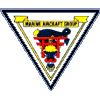| |
|
|
|
Ronald Steven Campbell
Lance Corporal
HMM-165, MAG-16, 1ST MAW, III MAF United States Marine Corps Portland, Texas March 10, 1948 to June 17, 1969 (Incident Date June 11, 1969) RONALD S CAMPBELL is on the Wall at Panel W22, Line 63 See the full profile or name rubbing for Ronald Campbell |
   |
  |
|
I was a fellow member of Platoon 2010 in the summer of 1967. Campbell as I remember him had an easy sense of humor. More of a follower than a do'er. In Boot Camp he kept up well with the rest of us, never complained and stood up to our DI's wrath to cover a fellow recruit's honor. Campbell, yet you live ... in our hearts and my remembrances of really sunny days! Put in a word for me at "The Gate".
I remain
From a fellow recruit, |
|
LCpl Campbell had changed the number 2 engine the night before this incident. I was assigned as post maintenance pilot to make sure the engine was fully functional and matched the number 1 engine in power output. After completing the engine tests, LCpl Campbell and I returned the aircraft to the flight line. On arrival, the maintenance officer, Captain Hank Cipolla, asked us to go to Phu Bai and pick up a transmission. This request was reasonable, but we needed to outfit the CH-46A with guns and a copilot since we were going to leave the environs of our home field. LCpl Campbell arranged for a gunner, PFC Thomas Riley, to get guns and ammunition to prepare the aircraft for the mission. It is worth noting that I was supposed to leave Viet Nam in a couple of weeks and was assigned to administrative missions (no combat) only, and LCpl Campbell was supposed to be in the same status. Later that morning, with the transmission aboard, we were flying from Quang Tri to Camp Evans, near Phu Bai to drop a passenger, PFC Dixon, before returning to Marble Mountain. En route to Camp Evans, we experienced an explosion in the rear of the helicopter. I could see from the gauges that the number 2 engine was the cause of the explosion. As I was completing the emergency procedures for the loss of one engine, LCpl Campbell announced "fire" over the intercommnunications system. Thick, white, acrid smoke filled the cockpit and I was unable to see the instruments or outside of the aircraft. I removed my helmet to place my head near the right side window to see outside. I had already started a descent, since one engine was not powerful enough to maintain level flight at our weight with the transmission. In a few more seconds, the number 1 engine exploded and the rotor RPM began to decay rapidly. I pushed the collective pitch lever fully down and pointed the nose of the helicopter toward the ground to descend rapidly. At this point, I felt a hand on my left wrist pushing down on the collective. It had to be LCpl Campbell trying to make sure I was descending as rapidly as possible. I was being burned on my left arm and my exposed head at this point, so the flames in the cabin had to be even more intense. Though one of the hydraulic systems had obviously failed producing the thick white smoke as the hydraulic fluid burned, I must have had one operating system, which allowed me to control the aircraft in the descent. There was no flat place to land, so I began a flair to reduce airspeed as I thought I was approaching 200 feet above the ground. As the trees began to pass the pilot's window, I pulled in collective pitch to reduce our descent ... and that's all I remember until I awoke lying on my back near the burning wreckage. I had been ejected, along with my pilot's seat, through the front of the aircraft. The incident had been observed by a nearby US Army DUSTOFF helicopter, which came to our aid and picked up the injured - PFC Dixon, LCpl Campbell and myself. I am convinced that the only reason PFC Dixon survived this incident is because LCpl Campbell threw him from the aircraft as I leveled off to make the crash landing. My injuries were life threatening and I was saved by the quick action of the Army crew of the helicopter that picked me up and the Army doctors who operated on my lacerated liver to stop my internal bleeding and treat the several other wounds I received. Sadly, LCpl Campbell's severe injuries caused him to develop pneumonia from which he succumbed several days later. The civilian technical representative/copilot, William Pierce, and the gunner, PFC Thomas Riley, died in the crash. Semper Fidelis, LCpl Campbell, PFC Riley and Bill.
From the pilot in command, |
A Note from The Virtual WallOn 11 June 1969 a CH-46D (BuNo 152529) was making an admin run to pick up an aircraft transmission. As the aircraft was returning to Phu Bai it was hit by .51 caliber anti-aircraft fire. The hits ruptured hydraulic lines and set the number 2 engine on fire. Burning hydraulic fluid filled the cabin and cockpit with acrid white smoke. The pilot began an autorotation to landing near a railroad bridge alongside Highway 1. As the autorotation continued, the number 2 engine failed. The aircraft impacted fast and continued to burn.Five men were aboard the CH-46:
|
| Contact Us | © Copyright 1997-2019 www.VirtualWall.org, Ltd ®(TM) | Last update 08/15/2019. |